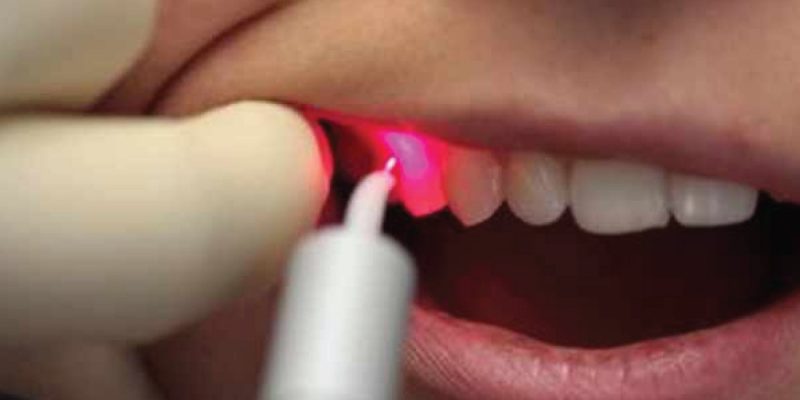
Prof. Chandrashekhar Yavagal (Hubli, India) is pediatric dentist and PhD researcher on Lasers. He has a Diploma in Orthodontics from World Institute Barcelona, Spain and a fellowship of the the International College of Dentists, Associate Fellow of the World Clinical Laser Institute and Diplomate of the International College of Neuromuscular Orthodontics & Gnathology, Italy. He currently serves as a Post Graduate teacher and Guide at MMNGH Institute of Dental Sciences, Belgaum,RGUHS India with more than 75 publications International peer reviewed journals. He is the India Mentor for the Asian Academy of Laser Therapy and Vice – President of the College of Light Medicine and Laser therapy (COLLL) Germany. He is one of the coveted speakers at DRDCA 2020 International.
Introduction
LASER – An acronym for Light Amplification by Stimulated Emission of Radiation sounds too complicated! But the basic idea behind this amazing phenomenon is actually pretty simple. It’s safe for us – practicing dentists to stick to the notion that it is a form of energy derived from Light! In fact, since ages Light has been known to possess special properties and is hence considered sacred enough to be able to sustain life! Is it a wonder then, that we start our festivities by lighting a lamp? It has been written in our ancient scriptures that by lighting a lamp, we are actually creating an ambience of energy and positivity. It is purely because of this reason that all places of worship are centered on a source of light!
Light begets energy and energy begets vitality & health. Though the energy and healing abilities of Light were known to our ancestors, we, the so called scientifically inclined Homo sapiens understood the relationship between mass and energy only after Einstein gave us the famous equation E=mC2. As health care providers of the modern millennium, the first and foremost thing that we need to understand is that any disease in any tissue in the body is just an absence of this vital energy!
Quest for the Healing Light
Modern medicine has taught us to treat symptoms instead of causes, often with extreme measures like surgery. Modern dentistry is no exception to this rule. In our quest for technical excellence we seem to have forgotten that we were supposed to be ‘healers’ to begin with. Somewhere we seem to have taken our body physiology for granted and have started disregarding our own healing abilities.
Therapeutic lasers or PBM (PhotoBioModulatory) lasers are excellent tools which could give back that healing touch to modern medicine and dentistry. Laser medicine or laser therapy involves the use of these low power lasers on areas of the body that have been injured, damaged or diseased. In contrast to high-powered surgical lasers which are designed to cut tissue, these therapeutic lasers produce beneficial photobiomodulatory interactions that can significantly reduce pain, increase blood circulation, reduce swelling and dramatically improve healing time.
History of laser therapy
The use of light as a healing modality has been traced to ancient Egypt as early as 2000 B.C. However Laser light is unique because it is monochromatic (one colour), coherent (all waves are in synergy /phase) and can be collimated (held to a small spot size even at great distances). Dr. Endre Mester was the first to scientifically observe the therapeutic benefits of Laser when he observed hair growing more rapidly on shaved mice that were exposed to low levels of laser light. From that day onwards LLLT (low level laser therapy) has revolutionized the way we understand and treat disease.
Mystery behind the Magic!
The photons of laser light penetrate through the skin and are absorbed by special components of the body’s cells called chromophores. Just as photosynthesis creates energy for plants, the absorption of photons in the cells increases cellular energy, particularly in those tissues which are damaged or injured. Thus, by increasing the production of cellular energy we are harnessing the body’s natural healing capabilities to fight disease.
Implications for Modern Dentistry
Laser medicine has a track record of over a decade for providing painless yet highly effective therapy for as many as 24 dental problems. There are over 230 positive research studies done by 81 universities across 37 countries which have shown a success rate of anywhere between 80 and 95 percent. Some of these dental applications include (in alphabetical order)
- Alveolitis (bone infection)
- Anesthetic (to increase profoundness of dental anaesthesia)
- Bleeding (to arrest post-operative bleeding)
- Caries (to detect and painlessly treat cavities)
- Dentitio Difficlis ( teething problems in children)
- Endodontic – for treating fresh/failed root canals in a pain free manner
- Extraction – used before and after to control bleeding, pain and enhance healing
- Gingivitis –bleeding gums
- Herpes zoster (cold sores)
- Hypersensitive dentine (immediate results)
- Implantology –to enhance osseo –integration
- Leukoplakia (pre –cancerous tissue because of tobacco chewing etc).
- Mucositis –due to cancer medications
- Nausea /vomiting sensation control
- Nerve injury during 3rd molar /wisdom tooth surgery
- Neuralgia and facial pain
- Orthodontics –to fasten teeth movement
- Paediatric dentistry
- Prosthetics –denture sores
- T.M. Joint /TMD related pain




















Comments